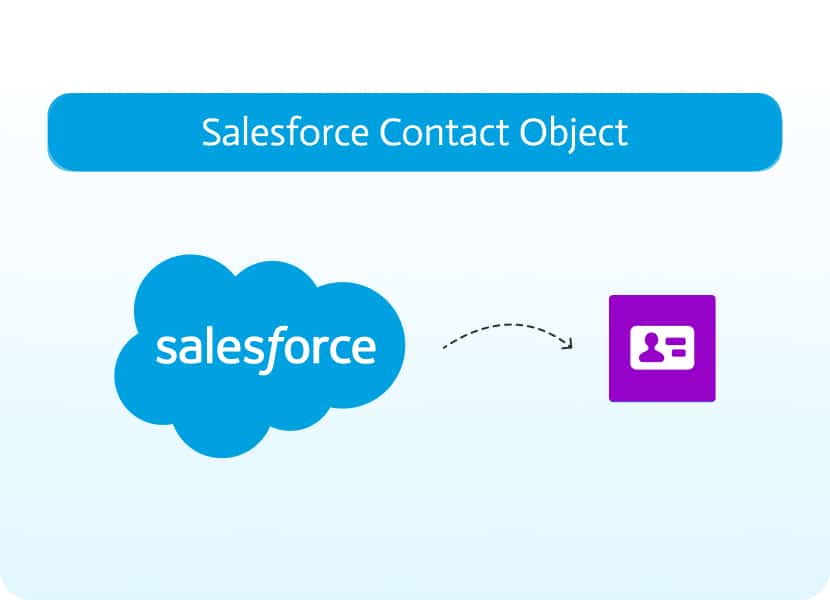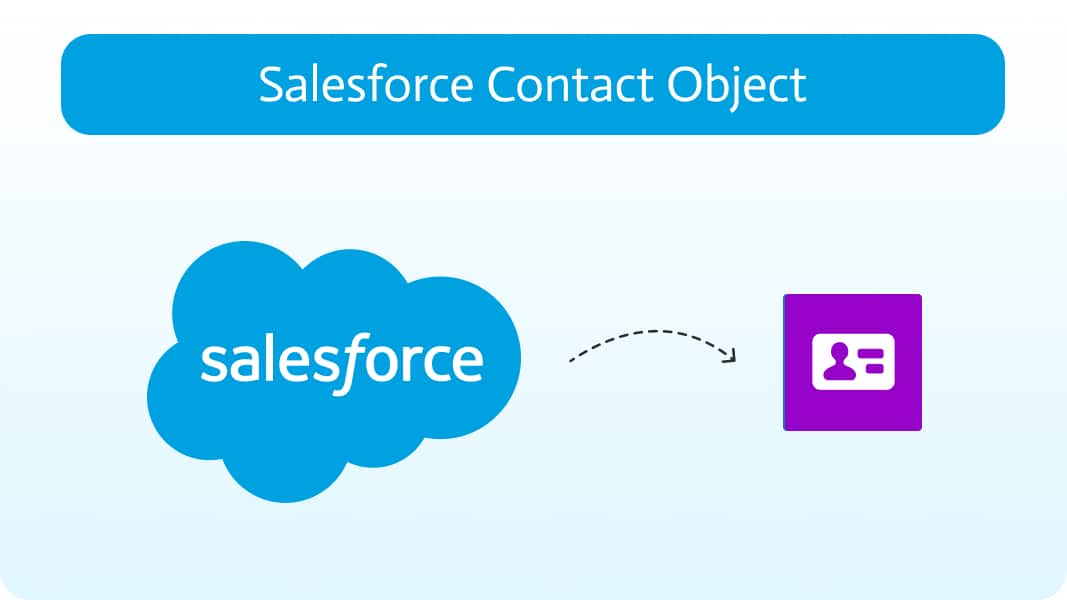

What is a Salesforce Contact?
The Salesforce Contact Object represents an individual person associated with an account. It plays a crucial role in building relationships, tracking interactions, and managing communication with customers, prospects, or any other relevant individuals within your business network.
Key Features of the Contact Object
- Relationship Management
The Contact object allows businesses to manage detailed information about individuals related to accounts. This includes personal details, job titles, and contact information, providing a 360-degree view of customer relationships. - Linking Contacts to Accounts
Contacts are always linked to an Account (which represents a business or organization). This allows for a structured relationship between the individual and the broader company context. - Customizable Fields for Contact Information
Salesforce offers flexibility in customizing the Contact object to capture specific details such as social media profiles, preferences, or other unique identifiers that may be relevant to your business.
Tracking Engagement and Communication
Salesforce enables you to track all interactions with Contacts, including emails, calls, meetings, and activities. This helps your sales or service teams maintain up-to-date information, ensuring effective follow-ups and engagement strategies.
Managing Contact Roles and Responsibilities
Contacts can be assigned specific roles within an account, such as decision-maker or influencer, which allows your team to prioritize interactions based on the role they play in the customer’s organization.
Integration with Marketing Campaigns
Contacts are closely tied to marketing campaigns, allowing businesses to track how individual contacts engage with marketing materials, events, or promotions. This helps tailor future marketing and sales efforts for maximum impact.
Automation and Workflow for Contacts
Salesforce’s automation features help businesses streamline contact management by setting up workflows that automatically update contact records, send follow-up reminders, and trigger communication based on predefined criteria.
Reporting and Analytics for Contacts
Salesforce provides in-depth reporting on contact engagement, providing valuable insights into customer behavior and helping sales teams identify potential opportunities for upselling or cross-selling based on contact history and interactions.
Best Practices for Managing Contacts
Keep Contact Information Updated
Regularly review and update contact records to ensure all information is accurate, minimizing the risk of miscommunication.
Define Contact Roles Clearly
Clearly define and assign roles for each contact to help prioritize engagement and understand each individual’s influence within the account.
Conclusion
The Salesforce Contact object is essential for managing customer relationships, tracking interactions, and personalizing communication. By effectively utilizing its features, businesses can maintain detailed records of every individual contact, making it easier to nurture leads, improve customer engagement, and drive sales. With its robust integration with accounts, marketing, and automation tools, Salesforce Contacts ensure businesses stay organized and proactive in their customer relationship management efforts.


